Pay-per-click (PPC) can truly make or break your business. If done well, your brand can get a lot of traction, a lot of conversions, and get in front of the exact right people at the exact right time. For those of you who are wondering if PPC is a good call for your business, the short answer is: YES.
Today we’re going to tell you all about the PPC basics so you can make a smart decision with your marketing budget.
What is Pay Per Click?
Let’s start at the beginning, shall we? What exactly is PPC? It’s a digital marketing strategy consisting of ads that appear to your specific audience, using specific words, at specific times, in specific geographical locations. When a user clicks the ad, you (the business) pay for the click (hence pay-per-click). You bid on the value of each click which is largely based on your keywords.
Who uses PPC ads?
Anyone who wants to get their audience to take some kind of action, or a business that’s hoping to promote their brand. If you hope to increase sales, get more leads, get more traffic, get more recognition- PPC is for you.
PPC platforms
You have the ability to control your filters and targeting and can fire your ads off at any given time in any given area.
There are two main platforms that will support your PPC campaign:
- Google Ads: this is the biggest PPC platform and runs on Google, their partner sites, and display network sites
- Microsoft Advertising: this platform shows ads on Microsoft and Yahoo networks including Bing
PPC structure and setup
You start your campaign by choosing your keywords (wisely). For instance, if you have a company that sells clothes, your main theme is clothes. Next, you will create smaller categories that are more specific called ad groups, such as baby clothes, women’s clothes, men’s clothes, etc. And keywords are created for each of these, too.
Your keywords are the main component of your successful ad campaign. There are a few ways you can implement your keywords and make them work for you:
- Exact: this means an exact match of the query is necessary for your ad to come up
- Exact Close Variant: this is when a query is typed exactly with misspellings and variants taken into account
- Broad: this is when the query is typed in any order and other ads may also show up
- Phrase: this is when the query is typed in the correct order (additional words before and after the query don’t matter)
- Phrase Close Variant: this means the query needs to be in the correct order with misspellings and variants taken into account
Negative keywords
When you enter negative keywords, you’re telling the search engines not to allow your ad to come up for certain words typed into a query. This is a really important piece of the pay-per-click puzzle and can save you a bunch of money. For example, if you sell men’s extra-large shoes, you don’t want your ad to come up for someone searching for kid’s shoes.
The ad’s copy
Ad copy is important and should always have the keywords, prices, and some kind of call to action. When writing a Google Ad, you must follow these guidelines:
Headline: up to 30 characters
Headline 2: up to 30 characters
Description line: up to 80 characters
Path 1: up to 15 characters
Path 2: up to 15 characters
It’s important to note that your ad must be relevant and honest and do what it says it’s going to do when clicked. It must also work on both desktop and mobile. After your ad is clicked, you want your users to go to a well thought out page that makes sense to the ad.
The Takeaway
There’s a lot of moving parts to your PPC campaign and this post only details a few of them. If you’d like more information on PPC management or want to get into the nitty-gritty of how to run a successful PPC campaign, please call us and let’s talk.




